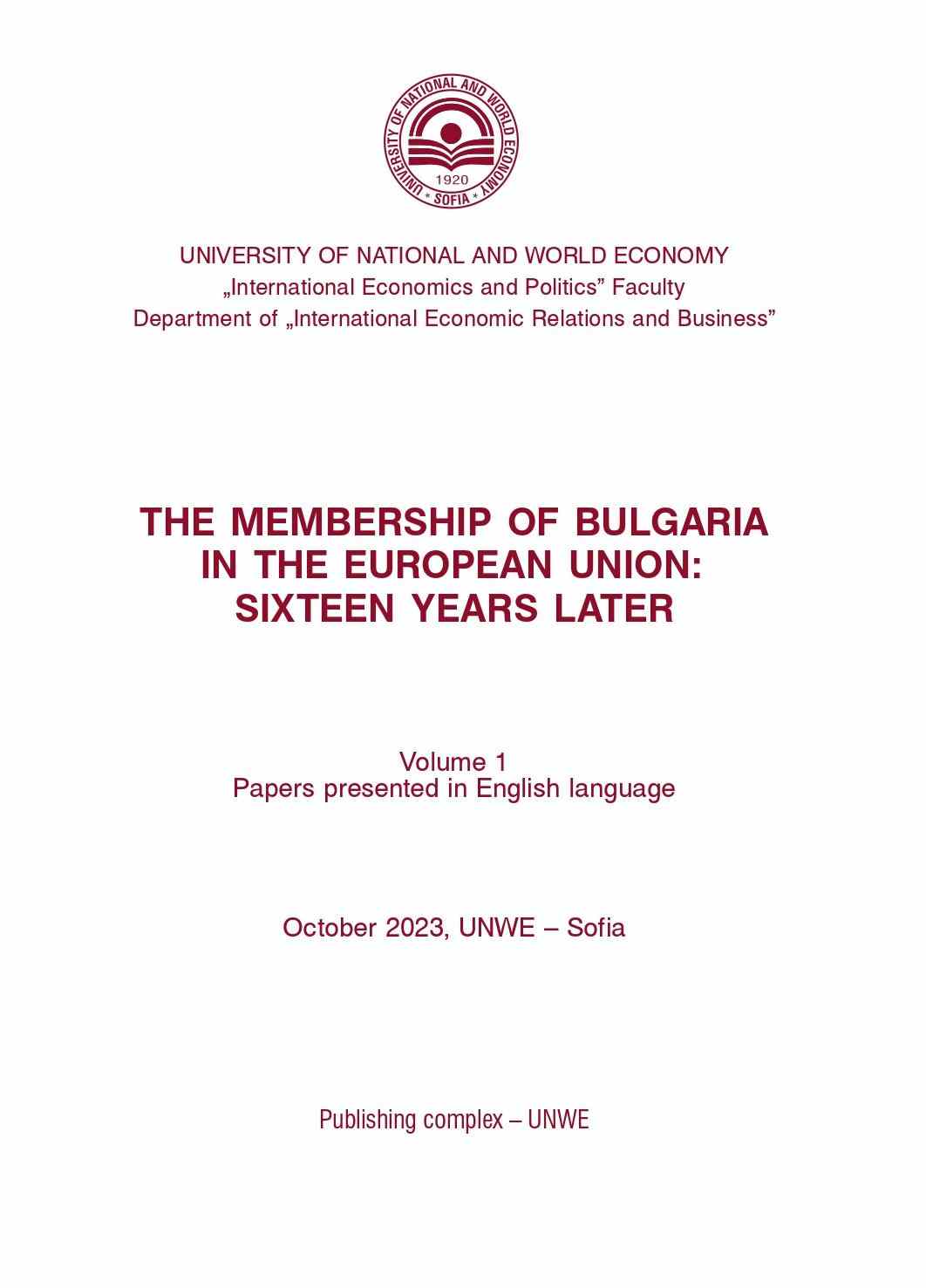The Rapidly Growing Euroscepticism - A Result of the Internal Political Processes in the Member States of the European Union
The Rapidly Growing Euroscepticism - A Result of the Internal Political Processes in the Member States of the European Union
Author(s): Todor Kondarev
Subject(s): Politics / Political Sciences, Politics, Economy, Political Theory, Government/Political systems, Politics and society, EU-Accession / EU-DEvelopment, Socio-Economic Research
Published by: Университет за национално и световно стопанство (УНСС)
Keywords: European Union; Euroscepticism; Political system; National states; European institutions
Summary/Abstract: The report "The rapidly growing Euroscepticism - a result of the internal political processes in the member states of the European Union" presents the realities and challenges facing the European Union in recent years, namely one of them is the growing Euroscepticism towards the project for a united Europe. The European values that have been fundamental to the construction of the European project, uniting for more than several decades free, democratic and peace-loving countries, are being tested given the desire of more and more EU citizens to strengthen the influence of the national states represented in the European structures, and the institutions of the Union to have less and less influence over the decisions in the legislative process of the individual member states, giving the prerogative of national law over European laws. Euroscepticism even takes an extreme form with some European parties represented in the political system of the countries, agitating for their departure and disintegration of the Community. The scientific report also presents and analyzes in detail the reasons and factors influencing public opinion in the EU, which led to the alienation of people from the political system of the Union, strengthening the desire for national separatism from the European institutional structures. Euroscepticism is becoming increasingly influential, both in the member states that laid the foundation for the creation of the EU after the end of the Second World War, and in the more recently joined former totalitarian states that have been democracies since 1989, a period associated with the end of the Cold War.
- Page Range: 67-78
- Page Count: 12
- Publication Year: 2024
- Language: English
- Content File-PDF

